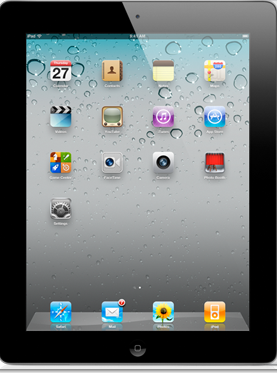How will Windows 8 tablets fare against Amazon's Kindle Fire?

Almost every analysis I've read today about the just announced Kindle Fire tablet from Amazon pits the Kindle Fire against the iPad and various Android tablets.
Even though Windows 8 tablets are still possibly a year away from shipping, Microsoft needs to be factored in here, too..
Will potential new tablet buyers want this?
This?
Or this?
Obviously, buying choices aren't entirely based on just one factor. It's not just the user interface that is the ultimate differentiator. Price, apps, usage plans, device weight, battery life, overall look and feel and many more factors matter, too. And we don't know enough about Windows 8 -- beyond the user interface and legacy app support plans -- to truly evaluate it against the existing and coming competition.
For me, portability is perhaps my No. 1 evaluation criteria for tablets. What makes a tablet portable (or not)? An easy-to-carry form factor, excellent (8-hour-plus) battery life, obviating the need to carry extra batteries and power cords; and fast boot-up/shut-down, enabling me to instantly start or finish using the device. That's why I bought an iPad last year; I couldn't find a Windows PC in tablet form factor that met these requirements. If the Amazon Kindle had been out then, I definitely would have considered it -- and possibly bought it -- instead of my iPad.
The Samsung prototype tablets Microsoft gave Build attendees were not very portable compared to the 7-inch-screen, 14.6 ounce Kindle Fire. There are indications that Intel-based PC vendors are (finally) getting the message that even us PC users prefer thin and light devices. And though we have yet to get to test drive ARM-based Windows 8 tablets, thin and light has been their typical calling card.
Microsoft's Windows team isn't going to allow itself to be rushed to market with Windows 8, no matter which other vendors enter and at what price. I don't think Microsoft's lateness with a true iPad and Kindle Fire competitor is an impossible-to-overcome hurdle. And the $200 price tag of the Kindle Fire isn't a deal breaker, as Microsoft can subsidize with the best of them.
I do think the Kindle Fire makes it even more imperative that Microsoft has a strong cloud story to tell with Windows 8. We know very little about the Softies' strategy here, beyond the fact that users can log onto Windows 8 using their Windows Live IDs and sync their settings and data across Windows 8 PCs in this way. SkyDrive is Microsoft's wildcard here and the Windows Live team has shared only some very brief glimpses about its plans for enabling Windows 8 users to capitalize on Microsoft's drive in the cloud. (Unlimited SkyDrive storage for photos and documents would be a good start.)
What else do Windows 8 tablets need to deliver to stay competitive against future iPads and Amazon tablets, in your opinion? I'm wondering whether Microsoft could/should introduce a less-capable tablet (based on the Windows core that doesn't offer legacy app support, perhaps) to fend off its rivals at the low end.... Thoughts?
